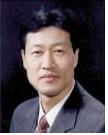#18

Have brought this ministry to new heights of effectiveness and longevity.
In a way, this book serves as an update on what has happened to the Lay Pastors Ministry since the publication of my first book in 1987. But more than that, it moves beyond my first book. Significant discoveries during these years have brought this ministry to new heights of effectiveness and longevity. Some discoveries are:
- The Lay Pastors Ministry works. It does what it is supposed to do.
- As with anything that is alive, adjustments and adaptations have to be made. Changes based on experience, new insights, evaluation and trial-and-error are necessary.
- Prayer is absolutely essential! Jesus said, “Apart from me you can do nothing” (John 15:5). It’s true!
- There is genius in P A C E, which is a complete operational description of adequate pastoral care.
- “Twelve Foundation Blocks” undergird the ministry. If any one of them begins to weaken, the whole ministry is at risk. There are fleshed out in chapter 7.6. The ministry works in churches of all sizes. It is found in 49 states in the United States, 6 provinces in Canada, 5 states in Australia, the Bahamas, South Africa and other countries.
- The ministry is adaptable to particular church needs and people. We have urged churches to use the principles in adopting or adapting the structure. No two churches do it exactly the same are creatively different.
- Ministries that fail, usually fail for specific reasons.
- Some churches move on to other forms of caring for their people, having cut their teeth on the Lay Pastors Ministry.
- Many of the ministry’s problems are common to all churches. The two most common are recruiting and motivating.
- Churches need to position their lay pastoral care ministries into their total programs. 12. The “culture” of each church determines the need, priority and viability of its ministries. 13. Love is the essence of this ministry. Without love, pastoral care is “only a resounding gong or a clang cymbal” (1 Cor. 13:1). 14. The ministry is as good as the people doing it.
These discoveries are the makings of this book. It will therefore be a continuing useful resource to those who already has a lay pastoral care ministry, to those who already have a lay pastoral care ministry, to those who are contemplating the possibilities and to those who are starting other lay ministries or have them on-line.●
(Audio/Byeong) Dr. Melvin said on “7 Ministries that fail, usually fail for specific reasons.” Of course, some churches fail, not because of this ministry itself, but other reasons: for instance, senior pastors are not interested in this ministry, the leadership group of lay people are weak, or they misunderstood this is a program of church growth, or trying to do discipleship making style.
COMMENTS
in relation to Significant discoveries
 Angela C. Bosfeld Palacious (Bahamas) says:
Angela C. Bosfeld Palacious (Bahamas) says:
The spirituality of lay pastors is that of a Christian who seeks to know God more and more so to show God more and more. The experience of a relationship with our Heavenly God through the person of Jesus Christ by the power of the Holy Spirit is a lifelong journey packed with spiritual lessons.
Such life-time learning is motivated by and founded on love: God’s great love for us which in turn promotes our gradual development of loving actions and attitudes towards others and ourselves. We come to discover that God created us with love, for love and to love.
Imagine a world totally devoid of love. The total absence of tender care, kind words and a gentle touch, of compassion and empathy, of grace and mercy, forgiveness and reconciliation, is more than the human spirit can bear. The work of the lay pastor is to soften the harshness of what seems like cruel fate, to encourage trust in God and to pray with a strong faith in a future of hope and promise, in this world and in the next.
In order to maintain a disciplined approach to spiritual growth, lay pastors are to be reminded to make personal time in communion with the Lord the highest priority each day. Since their identity is to be found in God’s love for them, and their purpose is to worship God and love others as they love themselves, time spent ‘practicing the presence of God’ is essential for effective meaningful ministry.
There are a variety of approaches to personal intimacy with God and any combination on a daily basis will root and ground lay pastors and prepare for Spirit-filled service:
- Scripture: To feast on the word of God is the daily bread of the human soul.
- Prayer: To listen to the Spirit and share our heart with God
- Silence: To be still in the presence
- Music: To allow the ‘lullabies of love’ to wrap us in ‘rhythms of righteousness’
- Worship: To give due God praise and thanks
- Sacraments: To receive the Eucharist after Baptism ( and Confirmation)
- Work: To labour for the Lord
- Witness: To share the truth about God’s unfailing love
- Confession: To admit our sins to God and feel forgiven
- Journalling: To write our thoughts, feelings, experiences and revelations
These are but some of the myriad of Christian methods used to be present with the Lord.■
 Bong-Hyun Jang(Korea) says:
Bong-Hyun Jang(Korea) says:
In order for the lay ministry movement to succeed, I think it is necessary to overcome the extreme opposition between the two, and I think it is possible only in Christ.
That doesn’t mean that there is no gap in faith, because in Christ, there is no distinction between the laity and the clergy, but I think that gap in faith is not and should not be fixed forever while we live on this earth, but the problem is that we have institutionally fixed it, and I see the lay movement as a way to correct that, and that’s what I’ve been involved in.
So I think it’s impossible to do that without a major shift in thinking, but there are so many people in the church leadership and even among the laity who are surprisingly fixed in their thinking. That’s why it’s not easy to do this movement.
However, even among those who are involved in the LPM movement, we believe that conflicts will intensify and they will face frustration because they have not changed their mindset and are trying to achieve their own things with their old mindset.
In order to solve this problem, we must be convinced of the infinity of LPM because it is God’s will for us, that is, He wants us to participate in His infinite nature. I think that ministry is all about doing the work of making us, insignificant finite creatures, participate in the infinite nature (=shared attributes) of the Creator. This is the infinity of LPM. This is pastoral success.
However, I think this is the limitation of our LPM movement because it has become a tool of the church growth framework, which prioritises the number of members and the size of the church building in this world, rather than focusing on thoroughly building the quality of the faith of the members.■

Byeong, Melvin University, says:
We need to find this result in our own. Try to do this ministry at least 5 years then you will find these are true.
Networking for Nurturing: Why do we need networking? It should be for helping each other. By being close to each other we may help more, that’s the first reason of Networking. Through networking we could find what’s their strength and weakness, necessity, therefore, we can deal with it especially if there are some weak points in the ministry.
I found that the main task of networking is nurturing each other. Yes, the purpose of networking is sending and receiving the news, and giving information but more fundamentally, they are there for nurturing each other, so how can we nurture! As we know there were some steps for the progressing in every churches, so they have Training Manual on each step, for instance: 1) New member class, 2) Nurturing class, 3) Discipleship training, 4) Serve, so on. They have a few weeks training course, mostly 12 weeks at each step in the Korean churches.
But nurturing may come from good networking in terms of ministry. We know there are many channels to get nurturing in our ministry: peers, coworkers, staffs, board members, and phone call, and also group dynamics, workshop, so on. Therefore, we need to open our eyes and resources to get nurturing. There are many things around us, but sadly we, for instance Korean churches, only rely on the Training Manual, Classroom and Coursework, then they are given Certificate and proud of themselves having many certificates. They are satisfied about those completion and their courses: one, two, three and four levels. I am not blaming those Training Courses or not saying that we don’t need it. What I mean here is only class room, book, training manuals are not enough,1) because it target on our head awaken, gives us some freshness but not going deep into our lives, perhaps all the rest of our life. This is the reason why training Manual is ok, but try to get those in our blood and flesh, and also we need to understand through many channels we are nurtured. One of major resource is networking which implies many things. Jesus also used networking very well and there are so many incidents, and stories in the Bible, most of them are Jesus’ Networking.■
ADDITIONAL COMMENT
by BYEONG
Sense of ownership and motivation: Success in ministry requires two things: motivation and ownership. But I found the two really relevant. When a member of a parachurch ministry, or a member of a church, has a sense of ownership in a given ministry, they become fully motivated and devoted.
Of course, we should be careful about the difference between motivation and manipulation. Both make people move, but manipulation is not good for long-term ministry. We can use it sometimes, but we have to be very careful when we use it. Because it makes easy to misunderstand, we might as well avoid such an approach as possible. So we need to learn more about how to motivate people. Because every ministry starts with motivation.
Now let’s see how ownership and motivation work. What is a sense of ownership? It means having the concept of “my work, my mission, my mission from God, and therefore all responsibility lies with me.” So how do you get a sense of ownership? We may have it from ourselves, but most of it is given by others. Usually in ministry, it is given from a leader. My meaning is from the top man, i.e. from the pastor in charge. This is because the pastor is the final decision maker in the church. Without a sense of ownership, we cannot commit, nor can we develop ourselves, nor are we creative. Creativity is very important to grow ourselves. Without creativity, we cannot develop ideas about what to do. In other words, “God wants this ministry in our church. So we have to do this ministry.” It can be seen as a mindset.
Someone should “own” the ministry. In other words, someone should be responsible for it, manage it, and take responsibility for its progress and current state. In other words, you are responsible for success and failure. This is a small group of people who share a vision and take responsibility. How many people is good? There were twelve with Jesus. But from my experience, around 10 people is good. More precisely, there are seven or eight people. Any large ministry organization is covered within this range. And when people within this range gather, all the necessary theories, strategies, and contents are included.
So what is the indication of having a sense of ownership? There are at least five signals. 1) Attending meetings regularly. 2) Thinking about it even when it’s not meeting time. 3) At home, and talking about it with friends and other people. 4) They can’t even sleep well, worrying about it when it doesn’t work. 5) And they feel joy when it goes well.

세분과의 만남
인생에서 서로 만남이 중요하다고 생각되는데, 나의 경우 신학교 시절과 나의 사역, 그리고 케냐 멜빈대학교가 세워지게 된 경우로 봐서 세분을 소개하고 싶다.
첫째로 1980년대 신학교 시절‘ 나의 앞길을 열어주신 분은 고) 양광석목사님 이시다 (현재 토론토 영암교회 양승민목사님의 아버님). 그 당시 나는 영어공부를 열심히 하던터라 용감하게도 전체 채플시간에 기도를 영어로 해보고 싶었던 생각에 당시에 교무처장이셨던 양광석목사님께 말씀드렸더니 쾌히 허락해 주셔서 전체 4~5백명 모인데서 시편 23편을 거의 외우다시피하면서 영어기도를 하였다. 나는 뭐라고 기도를 했는지 모를 정도로 기억도 안 났는데, 끝나고 나서는 반의 친구들이 “너 영어기도 잘 하더라”는 반응들이 나왔다. 그러니 친구들은 영어를 오죽 못했으면 그런 반응이 나왔을까하고 혼자 웃음이 나왔다. 그 이후로 자신이 붙어서 통역도 하면서 영어에 재미를 붙였다. 그리고 나는 감리교회에서 자라서 감리교 목사가 되려고 감신대학원을 졸업하였는데 유학을 가고 싶은 마음에 또 양광석목사님을 찾아가서 유학을 의논했더니 쾌히 추천서를 써주셔서 해밀턴의 맥메스트에서 공부하게 되었다. 결국 안수는 모교단인 예수교대한 성결교회(예성)에서 받게 되었다. 지금도 생각하면 목사님께는 감사한 생각이 든다. 철부지 신학생때 희망을 주셨다. 정말 감사합니다.
두번째는 1999년에 한국에서의 연구소 사역을 시작 할 수 있도록 동기부여와 함께 개인적인 멘토가 되어 20여년간 나에게 각별한 애정을 갖고 도와주시고 지도해주셨던 미국의 고) 멜빈 스타인브런 목사님이시다. 한번은 성결대학교에서 강의하게 되었는데 학교측에서 목회적 돌봄(pastor care) 과목을 영어로 4학년 학생들께 강의해달라는 것이었다. 아마도 해밀턴의 맥메스터에서 공부할 때 졸업필수로 임상목회훈련(Clinical Pastoral Education: CPE)을 받은 적이 있기에 그랬던 것 같다. 그래서 그 방면에 영어책을 찾던 중 멜빈목사님의 책, Can The Pastor Do It Alone? 을 발견하게 되었다. 그래서 미국의 멜빈목사님께 연락드렸더니, 어쩌면 “그 책과 사역이 한국교회의 미래에 필요할 수도 있겠구나!”라고 말씀해주셨다, 그런데 그것이 적중하여 그 이후 20여년간 “평신도목회”라는 테마로 사역의 꽃이 피게 되었다. 내용은 평신도도 목회자와 꼭 같이 주님으로부터 부름을 받았다는 것이었다. 그래서 멜빈목사님과의 직접 만남, 그리고 그분의 사역을 전수받아 (미국에서는 이미 35년째 사역하고 계셨다.) 한국교회들을 섬겼다.
세 번째 만남은 케냐의 오길라 목사인데 2017년으로 거슬러 올라가서 같은 사역테마로 한국연구소에서 재정 지원하여 “케냐에 연구소오픈, 신학교설립”하여 진행하던 중, 2020년 5월에 영문자료를 좀 많이 보내주었더니, “이 정도면 대학교/university 설립이 가능하다며, 가지고 있는 땅이 18,000평이 된다하여, 여러가지로 준비하여 2020년 12월 4일에 착공식을 하고, 2021년 1월부터 7월까지 기본적인 요건사항만 충족되는 건물 두 동을 건축하여, 그해 8월 14일에 Melvin University로, 케냐정부로부터 인가받아 설립총장 (founding president)으로 학교를 진행시키고 있다.
또 하나의 다른 만남을 소개하자면, 앤드류 카네기(Andrew Carnegie)와 나폴레옹 힐(Napoleon Hill)의 만남이라 보겠다. 카네기는 미국의 강철왕으로, 또 뉴욕 맨하탄의 카네기홀로 잘 알려져 있다. 힐은 평범한 샐러리맨으로 몇가지 직업을 바꾸어 가다가 마지막에 출판사를 차려 잡지를 발행하던 중, 성공한 사람들을 인터뷰해 가기로 마음먹고 카네기를 찾아갔다. 여기서 두사람의 만남이 역사를 바꾸어놓는 일이 생긴 것이다. 두사람이 얘기하는 가운데 카네기가 힐에게 제안한다. “앞으로 20년간 전세계를 다니면서 성공한 사람들을 찾아, 그들을 인터뷰 하라. 그리고 성공한 내용들을 정리하여 책을 만들자. 20여년간 모든 비용- 가족생활비, 호텔비, 비행기료 전부를 내가 대주겠다.” 카네기의 이런 제안을 힐이 받아들여 20년간 인터뷰하여 발견된 자료들을 연구하여 발표하였는데, 그것이 바로 나폴레옹 힐이 쓴 책, “The Law of Success”(1928, 817페이지)이다. 누구를 만나느냐가 얼마나 중요한가를 잘 보여주는 내용들이라 생각 된다.●
